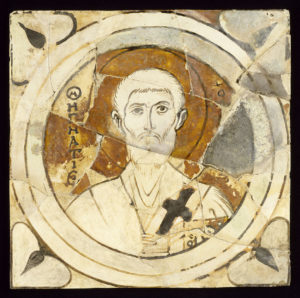Playlists



How We Got Here: A History of Progressive Christianity
Editor’s Note:
Every week there seems to be a new headline on social media about a Christian pastor, author, blogger, musician, worship leader, or YouTube celebrity de-converting from Christianity or re-inventing historic Christian doctrines. The common thread in many of these stories is Progressive Christianity. But what is progressive Christianity? Where did it come from? Why is it growing in popularity? And most importantly, is Progressive Christianity consistent with the Gospel and Scripture? These are just a few of the questions that our special guest writer, Alisa Childers, will be addressing in this series of articles on Progressive Christianity.
Alisa has a powerful story of walking through significant doubts on the way to a stronger faith and she cares deeply about preparing students with the truth, so they are not taken in by the subtle lies packaged within Progressive Christianity. A compelling speaker and author, Alisa teaches on this vital topic to our Impact 360 students both during the summer at Propel and Immersion, but also during our 9-month Christian Gap Year, Impact 360 Fellows. We are committed to cultivating leaders who follow Jesus in the next generation and this is an undercurrent that needs to be addressed. I’ve seen Alisa’s powerful message firsthand and am so glad that we can learn together in this important series.
Jonathan Morrow, Director of Cultural Engagement and Student Discipleship, Impact 360 Institute
Part 1- How We Got Here: A History of Progressive Christianity
A few hundred years after Jesus’ resurrection, a man named Augustine found himself sucked into a cult called the Manichaeans, who believed in Jesus, used Scripture to support their doctrines, and claimed their founder was the “Spirit of truth” Jesus promised would come after He ascended into heaven. Although Augustine was raised by a devout Christian mother, he became dazzled by the new and exciting promises that put a fresh spin on the Christianity he grew up with. It probably didn’t hurt that their beliefs permitted him to sleep with his girlfriend while pursuing his theological studies and perfecting his spiritual mind. As a philosopher, perpetual deep thinker, (and smartest guy in the room), Augustine had many questions that left his local Manichaean leaders scratching their heads.
They promised that if he could just meet a guy named Faustus, all his questions would be answered. Faustus was famous for being the most knowledgeable, acute, and brilliant defender of Manichaean beliefs. When Augustine was finally able to meet him, he found him to be the brilliant orator everyone said he was. He observed Faustus’ charm and charisma. Outside of those personality traits, however, Augustine found little to be impressed by. Faustus was not able to answer his questions, which caused Augustine to doubt his newfound belief system and eventually led him to become a true Christian.
The Manichaeans believed that the teachings of Jesus were incomplete and that they had revelations that would usher in true religion for everyone. In this way, they believed religion could progress beyond what was revealed in Scripture. In order to defend these ideas, Faustus wrote against the reliability of the Bible. He would twist, re-interpret, or omit the parts of Scripture that didn’t line up with Manichaean thought. After Augustine’s conversion to Christianity, he wrote a fairly comprehensive response to Faustus’ attack on the authorship of the gospels. He wrote: “You ought to say plainly that you do not believe the gospel of Christ. For to believe what you please, and not to believe what you please, is to believe yourselves and not the gospel.”[I]
“You ought to say plainly that you do not believe the gospel of Christ. For to believe what you please, and not to believe what you please, is to believe yourselves and not the gospel”
– St. Augustine

Saint Augustine- Public Domain
Augustine put his finger on a timeless truth. Christianity is not progressive…and those who try to mold it into their own preconceived ideas about who God should be, and what the gospel is should not try and twist Scripture to make their points. And they certainly shouldn’t call it “Christian.” But that is exactly what was happening in Augustine’s time, and it is what is happening today.
There is a growing movement in the church that seeks to re-interpret the Bible, re-assess historic doctrines, and re-define core tenets of the faith. All the while, this movement identifies itself as “Christian,” claims to follow Jesus, and boasts a high view of Scripture. But as we’ll see in this series, they are leading many unsuspecting Christians astray, and confusing the body of Christ about what the Bible is, what Jesus accomplished on the cross, and what the good news of the gospel proclaims.
But we shouldn’t be surprised by any of this. From as early as the New Testament was being written, heresies and false doctrines began finding their way into the church. After all, Jesus was the one who told us this would happen. “Watch out for false prophets. They come to you in sheep’s clothing, but inwardly they are ferocious wolves,” Jesus warned. Jesus not only predicted that Christians would be tempted by these false doctrines but pointed out that these teachings would be peddled by people who claim to be Christians. They would look like sheep, walk like sheep, and talk like sheep. But they would not be sheep—they would be predators looking to feast on the sheep.
Emergent Christianity
Back in the early 2000s, some Christian leaders got together to attempt to adapt Christianity to the post-modern mindset that was beginning to pervade culture. They were re-examining the methods the church had been using to reach the world and questioning some of the more legalistic, hypocritical, and downright cheesy elements of modern evangelicalism. But as the movement began to embrace mysticism and emphasize spirituality over religion, apologists and theologians expressed concern over the lack of a concrete belief statement among those involved. In 2006, Emergent leader Tony Jones published an article written by theologian LeRon Shults on emergentvillage.com (now a home and lifestyle magazine), about why there was no official statement of faith. Shults wrote:
A “statement of faith” tends to stop conversation. . . . Too often they create an environment in which real conversation is avoided out of fear that critical reflection on one or more of the sacred propositions will lead to excommunication from the community.[ii]
As the Emergents distanced themselves from a Christianity defined by beliefs and creeds, this different version of faith gained popularity among those disillusioned and disenfranchised by evangelicalism. This birthed “A New Kind of Christianity,” which titled Brian McLaren’s 2010 book. In it, he argues that the Christian notion of a good creation being marred by original sin, redemption by blood atonement, and the restoration of all things in heaven, to be pagan ideas borrowed from Greco-Roman philosophy.
McLaren claims that the true gospel can be known by reading the Jesus story through a Jewish lens. According to McLaren, this means it’s not really about who is “in or out,” or who goes to heaven or hell when they die. He describes Jesus as a “liberator King” who came to offer a kingdom that has “room for many religious traditions within it.”[iii] This type of kingdom champions causes like health care reform, green energy, climate change, and a “regenerative economy.”[iv]
With its denials of original sin and the blood atonement of Jesus, and emphasis on social justice, this new kind of Christianity was largely opposed by Evangelical church leaders. To this day, many think the Emergent movement just sort of fizzled out. However, in a 2012 blog post, Brian McLaren wrote that although they don’t still call it “Emergent,” it is actually stronger than ever. While it’s true the movement was driven underground, the conversation continued, the movement grew in boldness and in numbers, and essentially re-emerged as “progressive Christianity.”
The difference between Emergent Christianity and Progressive Christianity is location. While the Emergents were on the fringes of Christian culture, the progressives now seem to be driving it. With progressive Christian leaders penning best-selling books, garnering millions of followers on social media platforms, and producing podcasts that are regularly found in the top 10 of iTunes religion and spirituality category, their influence is incalculable.

St. Ignatius – Public Domain
But a careful eye to church history will demonstrate that every generation of Christians have had false doctrines, aberrant movements, and wolves in sheep’s clothing to deal with. Around the turn of the first century, church father Ignatius was writing against the heretics of his day, the gnostics. His words carry a familiar ring:
“For those [that are given to this] mix up Jesus Christ with their own poison, speaking things which are unworthy of credit, like those who administer a deadly drug in sweet wine, which he who is ignorant of does greedily take, with a fatal pleasure leading to his own death… For they speak of Christ, not that they may preach Christ, but that they may reject Christ; and they speak of the law, not that they may establish the law, but that they may proclaim things contrary to it. For they alienate Christ from the Father, and the law from Christ. They also calumniate His being born of the Virgin; they are ashamed of His cross; they deny His passion; and they do not believe His resurrection.”[v]
These words could be written about the progressive movement today. As we’ll see in the next post, progressive Christians tend to pit Jesus against the God of the Old Testament, declare the atonement to be “cosmic child abuse,” and emphasize the resurrection as illuminating a helpful metaphor over being a historical fact. By using many of the same words, and maintaining the title “Christian,” they mix up Jesus Christ with their own poison.
But like Augustine confronting Faustus and Ignatius opposing the gnostics, we can be encouraged to know that the historic gospel of Jesus Christ is still true, despite the many attacks against it. It’s our turn to speak truth in the lies, and we have the faithful witness of the historic church rooted in the reality of the resurrection and inspired Scripture to give us the courage to do just that.
It’s our turn to speak truth in the lies, and we have the faithful witness of the historic church rooted in the reality of the resurrection and inspired Scripture to give us the courage to do just that. @alisachilders
[i] Augustine, “Contra Faustum, Book XVII,” in The Church Fathers, loc. 248970, Kindle.
[ii] From statement by LeRon Shults in “Doctrinal Statement(?),” Emergent Village, May 4, 2006, https://emergent-us.typepad.com/ emergentus/2006/05/doctrinal_state.html.
[iii] Brian McLaren, A New Kind of Christianity (San Francisco: HarperOne, 2010), 139, Kindle.
[iv] Ibid., 63
[v] The Church Fathers. The Complete Ante-Nicene & Nicene and Post-Nicene Church Fathers Collection: 3 Series, 37 Volumes, 65 Authors, 1,000 Books, 18,000 Chapters, 16 Million Words . Catholic Way Publishing. Kindle location: 3447
SUBSCRIBE HERE for email updates with new content weekly
Go Deeper:
- How to Spot Progressive Christianity – Cultural Signs: Progressive Christianity Part 2
- How to Spot Progressive Christianity – Theological Signs: Progressive Christianity Part 3
- Original Sin or Original Blessing? Progressive Christianity Part 4
- How to Reach our Progressive Friends: Progressive Christianity Part 5


What are the Cultural Signs of Progressive Christianity?
What are the Cultural Signs of Progressive Christianity? Have you ever picked up a popular book at your local Christian bookstore, only to be confused when you read statements like, “The Bible is primarily a human book”? Or perhaps you’ve listened to a prominent Christian speaker only to be stopped in your tracks by their ambiguity regarding biblical sexuality and same-sex relationships. Maybe you’ve read a blog post written by a Christian pastor who portrayed the doctrine of substitutionary atonement as immoral and abusive. Maybe you’ve come across a tweet that claimed we need to “decolonize” our interpretations of Scripture. These are common ideas promoted within progressive Christianity.
Progressive Christianity can be a bit difficult to spot because typically speaking, progressive Christians aren’t united around an official creed or set of beliefs. In fact, progressive Christianity emphasizes action over belief; what you do over who you place your faith in. They use much of the same vocabulary as historic Christians, practice many of the same sacraments—like baptism and communion—and may even sing hymns and recite ancient creeds and liturgies. However, for progressive Christians, these words, phrases, sacraments, and traditions take on a whole new meaning. This is why it can be confusing and frustrating to identify their ideas in popular books, blogs, podcasts, and sermons. However, there are some very concrete beliefs and assumptions that undergird this growing movement, even if they aren’t recorded in an official creed. Moreover, there are certain warning signs to look for that can be cultural or theological in nature. In this post, we’ll look at the cultural signs.

Cultural Signs
From their refusal to offer a pinch of incense in worship of Caesar to their views on marriage and abortion from the first century until now, Christians have been marked by their refusal to capitulate to the false ideas of culture. However, one of the hallmarks of progressive Christianity is its tendency to flow with societal norms.
“Christians have been marked by their refusal to capitulate to the false ideas of culture. However, one of the hallmarks of progressive Christianity is its tendency to flow with societal norms.” @alisachilders
Sexuality – Biblical boundaries are removed
In early 2019, progressive Lutheran minister Nadia Bolz-Weber wrote a book about sexuality called, Shameless: A Sexual Reformation. In it, she argued that the idea that sex should be between one man and one woman within the covenant of marriage for life was not just incorrect, but harmful. She recommended reinventing the Christian sexual ethic to allow Christians to pursue sexual fulfillment as defined by the World Health Organization as being grounded in consent and mutuality. With the biblical boundaries for sex removed, she writes, “Whatever sexual flourishing looks like for you, that’s what I would love to see happen in your life” (p. 60) With this redefinition of sexual flourishing, Bolz-Weber approves of sex outside of marriage (even one-night stands), homosexual sex, and moderate use of pornography. And she isn’t a lone voice in the wilderness. Shameless was endorsed and promoted by many other prominent progressive Christian leaders such as Rachel Held Evans, Glennon Doyle, Sarah Bessey, Richard Rohr, and Austin Channing Brown. With prominent progressive Christian personalities like Jen Hatmaker, Sarah Bessey, Rob Bell, and Jim Wallis all speaking out in favor of same-sex marriage within the last couple of decades, one of the key goals of progressive Christianity is to change the church’s mind on this hot-button issue.
Relativism – What’s true for you is true for you
 Relativism essentially claims that truth cannot be discovered, known, or argued for. In other words, no one can claim to understand reality, which you might hear more commonly summarized in the mantra, “what’s true for you is true for you and what’s true for me is true for me.” The problem is that Christianity doesn’t give us the option to be relativists. Christianity is a belief system that is deeply rooted in absolute truth. In fact, it stands or falls based on a historical event being true…or false. The Apostle Paul wrote to the Corinthians, “And if Christ has not been raised, then our preaching is in vain and your faith is in vain.” If Jesus wasn’t raised from the dead, we might as well pack it up and call it a day.
Relativism essentially claims that truth cannot be discovered, known, or argued for. In other words, no one can claim to understand reality, which you might hear more commonly summarized in the mantra, “what’s true for you is true for you and what’s true for me is true for me.” The problem is that Christianity doesn’t give us the option to be relativists. Christianity is a belief system that is deeply rooted in absolute truth. In fact, it stands or falls based on a historical event being true…or false. The Apostle Paul wrote to the Corinthians, “And if Christ has not been raised, then our preaching is in vain and your faith is in vain.” If Jesus wasn’t raised from the dead, we might as well pack it up and call it a day.
Generally speaking, the progressive Christian mindset has largely accepted a relativistic view of reality, which is why we often see progressive Christians refer to the resurrection as a non-literal metaphor and Old Testament historical narratives as mythical stories from which we can learn good moral lessons.
Critical Theory – A Social Gospel in Disguise
One cultural trend that has become more and more accepted in the progressive Christian movement is a philosophical concept called critical theory. Critical theory sees the world as a struggle between oppressed groups and their oppressors and seeks to recalibrate power in favor of the marginalized. (This power is understood along the lines of race, gender, ethnicity, class, sexuality, and many other factors.) It downplays the idea that truth can be determined by rational thought and prioritizes “lived experience” and identity. In other words, those who have experienced greater oppression have a greater ability to discern truth than those who are more privileged.
Recently, progressive leader Jen Hatmaker wrote a post on Facebook illustrating views which seem to be informed by critical theory. She wrote, “When white, mostly male, straight married, able-bodied people with a certain threshold of money and power are at the center of the narrative, we will never correctly identify good fruit…privilege is a reliable enemy of discernment.” Interestingly, Hatmaker is in all of those categories except for one, which according to her statement, identifies her as highly privileged. However, this post displays the logical incoherence of critical theory. According to her own statement, we should doubt her discernment.
Aside from its logical inconsistency, critical theory stands in opposition to the gospel at several points. It functions as a worldview that sees our identity as being how we relate to other groups defined by our race, class, and gender, rather than as being image-bearers of God. According to critical theory, sin isn’t what is wrong with the world, but oppression, which is fixed by activism, raised awareness, and the overthrow of oppressive systems, rather than the blood atonement of Christ.
“According to critical theory, sin isn’t what is wrong with the world, but oppression, which is fixed by activism, raised awareness, and the overthrow of oppressive systems, rather than the blood atonement of Christ.” @alisachilders
 We can all look around and see that something is terribly wrong with the world. As Christians, we observe the brokenness around us and are rightly grieved by things like racism, poverty, exploitation, and systematic oppression. This is why utilizing critical theory can be an attractive option to solve some of these problems. It can seem like the loving and just thing to do. However, critical theory isn’t just a list of things we can do to make the world better. It isn’t simply a philosophy that gives us practical tools for standing up to injustice as we fulfill the great commission. Critical theory actually functions as a worldview, and when you lay it side by side with the Christian worldview, it stands in opposition at several points. Consider some questions every worldview accounts for and compare those to the answers given by the Christian worldview:
We can all look around and see that something is terribly wrong with the world. As Christians, we observe the brokenness around us and are rightly grieved by things like racism, poverty, exploitation, and systematic oppression. This is why utilizing critical theory can be an attractive option to solve some of these problems. It can seem like the loving and just thing to do. However, critical theory isn’t just a list of things we can do to make the world better. It isn’t simply a philosophy that gives us practical tools for standing up to injustice as we fulfill the great commission. Critical theory actually functions as a worldview, and when you lay it side by side with the Christian worldview, it stands in opposition at several points. Consider some questions every worldview accounts for and compare those to the answers given by the Christian worldview:
- Who are we? According to the Christian worldview, human beings are a special creation made in the image of God Himself. According to critical theory, our identity is not found in who we were created to be, but in how we relate to other groups as defined by our class, gender, and sexual preference etc.
- What is wrong with the world? According to the Christian worldview, God created a good world that has become marred by sin. Critical theory sees oppression, rather than sin as the core of what’s wrong in the world.
- How is this problem fixed? According to the Christian worldview, the problem of sin is cured by the atoning sacrifice of Jesus on the cross to pay for our sins, reconcile us to God, and secure victory over the powers of sin and death. According to critical theory, the problem of oppression is fixed by activism, raised awareness, and the overthrow of oppressive systems and their power.
- What is the meaning of life? The Christian worldview teaches that the meaning of life is to glorify God, whereas critical theory teaches it’s to free groups from oppression.
As Christians, we are called to do good works. There’s no question about it. In fact, James 2:26 tells us that “faith without works is dead.” But when someone begins to adopt the ideas of critical theory, it can slowly start to erode their Christian worldview by taking their eyes off the eternal truths of who God is and what He has done in the world. For example, critical theory classifies the biblical definition of sexuality as oppressive—a problem to be solved. This has confused many an unsuspecting Christian and even caused many to slowly slide into progressive Christianity, which exchanges a grace-based gospel for a works-based gospel.
As you can see, progressive Christian beliefs regarding culture are heavily influenced by secular thought rather than biblical revelation. When biblical teachings become socially unacceptable, progressive Christianity tends to ebb and flow with culture, rather than following the historic Christian tradition of upholding biblical truth. In our next post, we’ll look at some theological signs and how those points fail to align with historic Christianity.
SUBSCRIBE HERE for email updates with new content weekly
Go Deeper:
- The History of Progressive Christianity: Progressive Christianity Part 1
- How to Spot Progressive Christianity – Cultural Signs: Progressive Christianity Part 2
- How to Spot Progressive Christianity – Theological Signs: Progressive Christianity Part 3
- Original Sin or Original Blessing?: Progressive Christianity Part 4
- How to Reach our Progressive Friends: Progressive Christianity Part 5


How to Recognize Progressive Christianity Through Theology
 Theology matters because beliefs are connected with behavior. In addition to this fact, one’s theology also reveals the true source of authority serving as the ultimate foundation. Am I going to be faithful to Scripture or conform to what is culturally comfortable? A recent example of this is the book, Untamed, by Glennon Doyle, which is #1 on Amazon’s “Christian self-help” category and currently #1 on the New York Times best-seller list. It is written from a loosely Christian perspective, utilizes Scripture, and speaks about God, faith, Christianity, and morality. It also teaches that you can find God within yourself, promotes moral relativism, teaches that sexuality and gender are fluid, and blames the Bible for creating a culture that oppresses women.
Theology matters because beliefs are connected with behavior. In addition to this fact, one’s theology also reveals the true source of authority serving as the ultimate foundation. Am I going to be faithful to Scripture or conform to what is culturally comfortable? A recent example of this is the book, Untamed, by Glennon Doyle, which is #1 on Amazon’s “Christian self-help” category and currently #1 on the New York Times best-seller list. It is written from a loosely Christian perspective, utilizes Scripture, and speaks about God, faith, Christianity, and morality. It also teaches that you can find God within yourself, promotes moral relativism, teaches that sexuality and gender are fluid, and blames the Bible for creating a culture that oppresses women.
My hunch is that the average Christian might read that first paragraph with a bit of surprise and shock. How can someone who is accepted within a “Christian” paradigm believe and teach these things? The answer to that question can be found by understanding progressive Christianity. Progressives are not just a group of Christians who are changing their minds on social issues and politics. According to their most prominent thought leaders, authors, and speakers, they often deny core essential doctrines of the faith, which leads them to preach an entirely different gospel. As I have researched their books, blogs, and podcasts, I have discovered some theological signs to look for when trying to identify this movement.
“Progressives are not just a group of Christians who are changing their minds on social issues and politics…they often deny core essential doctrines of the faith, which leads them to preach an entirely different gospel.” @alisachilders
Theological Signs
The Bible – An ancient spiritual travel journal?
 Progressive Christians view the Bible as a record of what people believed about God in the times and places in which they lived, rather than the inspired and authoritative Word of God. It’s not uncommon for a progressive Christian to express disagreement with a biblical writer, or to reject the passages they find unhelpful. In fact, progressive leader Richard Rohr encourages Christians to ignore, deny, and even openly oppose Scriptures that are “imperialistic, punitive, exclusionary, or tribal.” [i]
Progressive Christians view the Bible as a record of what people believed about God in the times and places in which they lived, rather than the inspired and authoritative Word of God. It’s not uncommon for a progressive Christian to express disagreement with a biblical writer, or to reject the passages they find unhelpful. In fact, progressive leader Richard Rohr encourages Christians to ignore, deny, and even openly oppose Scriptures that are “imperialistic, punitive, exclusionary, or tribal.” [i]
This matters because if we give ourselves permission to deny or ignore the Scriptures that don’t fit into our preconceived ideas about who God is and how he acts in the world, we will have effectively transferred the authority for truth from the Bible to our own thoughts, feelings, and preferences.
The Atonement – Cosmic Child Abuse?
 Progressive Christians generally reject the doctrine of original sin, trading it for a concept called “Original Blessing” or “Original Goodness.”[ii] If we aren’t inherently sinful and separated from God by our sin, Jesus’ death becomes more of an example of love and forgiveness to follow than an atoning sacrifice that reconciles us to the Father. There are various atonement theories that are based on Scripture and help us have a complete picture of what Jesus accomplished on the cross. Christus Victor helps us understand that Jesus came to defeat the powers of sin, death, and the devil. The Bible uses language of “ransom” to describe a price being paid. The Moral Influence theory gives us Jesus as an example of love and forgiveness to follow. Penal Substitutionary Atonement theory illustrates how Jesus took the punishment of our sins upon himself and satisfied the wrath of God we should have received. All of these theories come together to give us a complete picture of what Jesus accomplished on the cross.
Progressive Christians generally reject the doctrine of original sin, trading it for a concept called “Original Blessing” or “Original Goodness.”[ii] If we aren’t inherently sinful and separated from God by our sin, Jesus’ death becomes more of an example of love and forgiveness to follow than an atoning sacrifice that reconciles us to the Father. There are various atonement theories that are based on Scripture and help us have a complete picture of what Jesus accomplished on the cross. Christus Victor helps us understand that Jesus came to defeat the powers of sin, death, and the devil. The Bible uses language of “ransom” to describe a price being paid. The Moral Influence theory gives us Jesus as an example of love and forgiveness to follow. Penal Substitutionary Atonement theory illustrates how Jesus took the punishment of our sins upon himself and satisfied the wrath of God we should have received. All of these theories come together to give us a complete picture of what Jesus accomplished on the cross.
In progressive circles, however, the idea that God would require the blood sacrifice of his only Son makes God the Father out to be some kind of divine child abuser. Thus, they often deny the substitutionary atonement of Christ. Michael Gungor, musician and host of The Liturgists Podcast, wrote, “I would love to hear more artists who sing to God and fewer who include a Father murdering a son in that endeavor.”[iii] And, “. . . that God needed to be appeased with blood is not beautiful. It’s horrific.”[iv]
This shift matters because, without the substitutionary atonement of Christ, there is no mechanism for the individual to be reconciled to God. In the progressive view, Jesus defeats the power of sin and death and gives us an example to follow but gives us no solution for the sins we actually commit.
Resurrection – Historical event or helpful metaphor?
With a lowered view of the Bible and a rejection of the atonement, the next domino to fall will naturally be the resurrection. If sin doesn’t separate us from God and Jesus didn’t really need to die to reconcile us to the Father, his physical resurrection becomes a bit of a moot point. To be sure, not every progressive Christian denies the bodily resurrection of Jesus. However, as we learned in the last post of this series, action is emphasized over belief. So, what one actually believes about the resurrection becomes of less importance.
A few years ago, a popular progressive blogger published a post written by a progressive Children’s pastor about how to talk to your kids about Easter. In it, she wrote, “the point of the Easter story isn’t whether or not Jesus LITERALLY rose from the dead. We’re missing the point if we’re fighting over the historical accuracy of a bodily resurrection.” She went on to advise parents to tell their kids that “stories don’t have to be factual to speak truth.” Often the emphasis is shifted from it being a historical reality to the lessons we can learn from the story.
 This matters because the Apostle Paul wrote, “If Christ has not been raised, our preaching is in vain and so is your faith … And if Christ has not been raised, your faith is futile and you are still in your sins.” (1 Cor. 15: 14,17) The truth of Christianity stands or falls based on the resurrection of Jesus being an actual historical event. Scripture tells us that if it didn’t happen, then we have no hope for salvation.
This matters because the Apostle Paul wrote, “If Christ has not been raised, our preaching is in vain and so is your faith … And if Christ has not been raised, your faith is futile and you are still in your sins.” (1 Cor. 15: 14,17) The truth of Christianity stands or falls based on the resurrection of Jesus being an actual historical event. Scripture tells us that if it didn’t happen, then we have no hope for salvation.
“The truth of Christianity stands or falls based on the resurrection of Jesus being an actual historical event. Scripture tells us that if it didn’t happen, then we have no hope for salvation.” @alisachilders
Heaven, Hell, and Final Judgment
Let’s look at progressive Christian theology like a set of building blocks. Without sin, atonement, and resurrection, there’s nowhere for the Heaven and Hell block to stand. If we were never separated from God in the first place, what would be the purpose of separating people out into Heaven and Hell for eternity? This is why many progressive Christians affirm some form of universalism, the idea that all humans (and, in some cases, all of creation and even fallen angels) will be saved and spend eternity with God. Nadia Bolz-Weber said, “I confess that I am a Christo-centric universalist. What that means to me is that whatever God was accomplishing, especially on the cross, that Christological event, was for the restoration and redemption and reconciliation of all things and all people and all Creation—everyone.”[v]
One of the most popular Christian books of all time is The Shack, which has sold over 20 million copies to date, and spent 136 weeks on the New York Times Best-seller list.[vi] Its theological influence on the Evangelical church is incalculable. A few years ago, its author, William Paul Young, wrote a book called Lies We Believe About God, which illuminated the theology that informed The Shack. In it, he wrote that he believes everyone will be saved, and calls this view “universal salvation.” [vii]
This matters because hell is God’s way of quarantining evil forever. Essentially, God’s promise to make all things new, and wipe every tear from our eyes is based upon the fact that he will deal with evil once and for all. Heaven is the pinnacle of God’s great rescue plan—one that he offers everyone. It’s a place where those who have put their trust in Jesus will spend eternity with the God they love. Everyone is invited, but he cannot let anyone bring their sin. If he did, he would essentially be standing in solidarity with us but be impotent to save us. As J. Gresham Machen wrote, “Such a God may deliver us from the fear of hell. But His heaven, if He has any, is full of sin.”[viii]
As you can see, progressive Christian theological beliefs are not simply secondary issues we can agree to disagree about. The progressive Christian movement is promoting a Bible that is not authoritative, a Jesus who didn’t die for you, and a God who cannot save you. Put simply, it’s another gospel— and not the good news that truly sets us free for life as God intended.
In our next post, we’ll take a look at what is underpinning much of the cultural and theological assumptions underneath progressive Christian beliefs. We’ll ask the question, “What is good?” and discuss the definition of good, and how it informs our beliefs about who we are, who God is, and how he reveals himself in the world.
[i] Richard Rohr, The Divine Dance (New Kensington, PA: Whitaker House, 2016), Kindle loc. 2827–2828
[ii] See Felten, David. Living the Questions . HarperOne. Kindle Edition, location 1822 of 5012
[iii] Michael Gungor (@Michael Gungor), Twitter, February 25, 2017, 9:57 am, https://twitter.com/michaelgungor/status/835549384079093760.
[iv] Michael Gungor (@Michael Gungor), Twitter, February 26, 2017, 4:31 pm, https://twitter.com/michaelgungor/status/836010890566725632?lang=en
[v] Jesse James DeConto, “For All the Sinners and Saints: An Interview with Nadia Bolz-Weber,” Religion & Politics, July 28, 2015, https://religionandpolitics.org/2015/07/28/for-all-the-sinners-and-saints-an-interview-with-nadia-bolz-weber/.
[vi] Larry Getlen, “This Man Wrote a Small Book for His Family—and It Became a Best-Seller,” New York Post, December 25, 2016, https://nypost.com/2016/12/25/this-man-wrote-a-small-book-for-his-family-and-it-became-a-best-seller/.
[vii] William Paul Young, Lies We Believe about God (New York: Atria Books, 2017), 118.
[viii] Machen, J. Gresham. Christianity and Liberalism. Kindle Edition location 1813 of 2451.
Go Deeper:
- The History of Progressive Christianity: Progressive Christianity Part 1
- How to Spot Progressive Christianity – Cultural Signs: Progressive Christianity Part 2
- Original Sin or Original Blessing? Progressive Christianity Part 4
- How to Reach our Progressive Friends: Progressive Christianity Part 5




Ten Ways “Grown-up” Christians Can Set a Better Example for Gen Z on Social Media
Dear Christians on Social Media, Gen Z is watching. Be careful what and how you post.
The unending scroll of images, ideas, and interactions are transforming the hearts and minds of Gen Z.
Gen Z–today’s teenagers and the generation after Millenials–is on their screens all the time. Our recent study on Gen Z with the Barna Group confirms they are screenagers.
With 57% of today’s teenagers using screens 4+ hours a day and 26% report looking at a screen eight or more hours on an average day, it is beyond question that they are being shaped in profound ways (President of the Barna Group David Kinnaman and I discuss this on a podcast here).
Gen Z is being discipled by their smartphones. The unending scroll of images, ideas, and interactions are transforming their hearts and minds. Their worldview is being altered with every swipe, like, and share.
What is Gen Z Learning By Watching Christians on Social Media?
The fact of the matter is that discipleship is happening all the time online. The question I want to ask here is what is Gen Z learning by watching “grown-up” Christians on Social Media?
What are the behaviors being modeled for the next generation on Facebook, Twitter, YouTube, and Instagram? Here are some of my observations:
- Be reactionary.
- Be snarky.
- Make hasty assumptions without all–or even some–of the facts.
- Don’t think critically, just feel.
- Demonize the opposition.
I am not surprised when I see non-Christians conduct themselves online this way, but as followers of Jesus, we must do better.
God’s Word offers a better way. Paul puts a fine point on it when he writes:
“Be wise in the way you act toward outsiders; make the most of every opportunity. Let your conversation be always full of grace, seasoned with salt, so that you may know how to answer everyone.”–Col. 4:5-6
There is a lot to learn here. Be wise. Be intentional. Be gracious. Be aware of the context and what people in that moment need.
How can we expect the next generation to be wise and gracious online when we are not willing to lead the way?
Another challenging passage from the Bible that should guide our online interactions is from the book of Ephesians:
“Do not let any unwholesome talk come out of your mouths, but only what is helpful for building others up according to their needs, that it may benefit those who listen.”–Eph. 4:29
Be helpful. Build up. Think of others. Lot’s to apply here too!
How Can Christians Set a Better Example for Gen Z on Social Media?
In light of these two passages, how can we set a better example for Gen Z on Social Media? This isn’t an exhaustive list, but it’s a start!
- Am I building up or tearing down with this?
- Do I have all of the facts? Or at least enough of them to make a reasonable judgment here?
- Have I tried to understand the other person’s point of view?
- Am I attacking the person when I should be critiquing their ideas?
- Just because something is trending doesn’t mean I must comment, retweet, like, or share.
- History and culture are complicated, have I oversimplified the issue/topic to more easily marginalize someone who doesn’t share my point of view?
- If I was sitting across from this person would I say what I just said online?
- Is what I am about to post helpful at this time? (some things don’t need to be said at certain times)
- Am I being gracious in how I am saying what I am saying?
- How can I leverage this moment to influence others toward Jesus and the way of life he offers?
Social media can be a powerful tool of influence but it can also be a devastating weapon. As Christians, we need to be careful how we steward our online interactions.
Gen Z has amazing potential for good, let’s do the hard work to disciple them in every area of life. And since they spend a good amount of their young lives online, let’s start there.
Afterall, how can we expect the next generation to be wise and gracious online when we are not willing to lead the way?
Want to learn more about Gen Z and how to better lead them? Watch this free webinar.
Go Deeper:


Gen Z: Vol 1 | Understand the Culture, Beliefs and Motivations Shaping Today’s Teenagers

This study is a snapshot of the ways Gen Z sees the world and the culture. Who is Gen Z? What are their assumptions and values? What is shaping them? How can we better equip them, reach them and help them follow Jesus with confidence in this culture?
“Gen Z was born between 1999 and 2015. Most of them are in their teens and childhood years. Gen Z is the second-largest generation alive today. In the U.S. there are 69 million of them, compared to 66 million Millennials, 55 million Gen Xers, and 76 million Boomers. The parents of Gen Z are Gen X and Millennials. They are the most ethnically diverse generation alive today, and they have, for better and worse, grown up with technology at their fingertips. The smartphone was invented before most of them were even born.
These are the basic facts about Gen Z, but we wanted to go deeper. We wanted to know how this new generation thinks, how they perceive the world and themselves. So we went straight to the source. We interviewed 13– to 18-year-olds in a multi-pronged, multi-month survey. First, the qualitative stage. We interviewed individual 13– to 18-year-olds about their lives, beliefs, activities. Then we took the results from those interviews and developed a questionnaire for a nationally representative sample of 1,490 13– to 18-year-olds. We asked them about their faith, home lives, friendships, social activities, media and technology habits, goals for life, political beliefs, even their ideas on gender.
Available for Purchase


Gen Z: Vol. 2 | Caring for Young Souls and Cultivating Resilience
 This report is an in-depth exploration of Generation Z’s emotional lives, their relationship with technology, and their impulses toward and habits of faith. In partnership with Barna and Impact 360 Institute, this 80+ page report features new and original research, thoughtful perspectives from ministry leaders, discussion questions and reflection application for the leaders of Gen Z, and much more.
This report is an in-depth exploration of Generation Z’s emotional lives, their relationship with technology, and their impulses toward and habits of faith. In partnership with Barna and Impact 360 Institute, this 80+ page report features new and original research, thoughtful perspectives from ministry leaders, discussion questions and reflection application for the leaders of Gen Z, and much more.
Available for Purchase:












